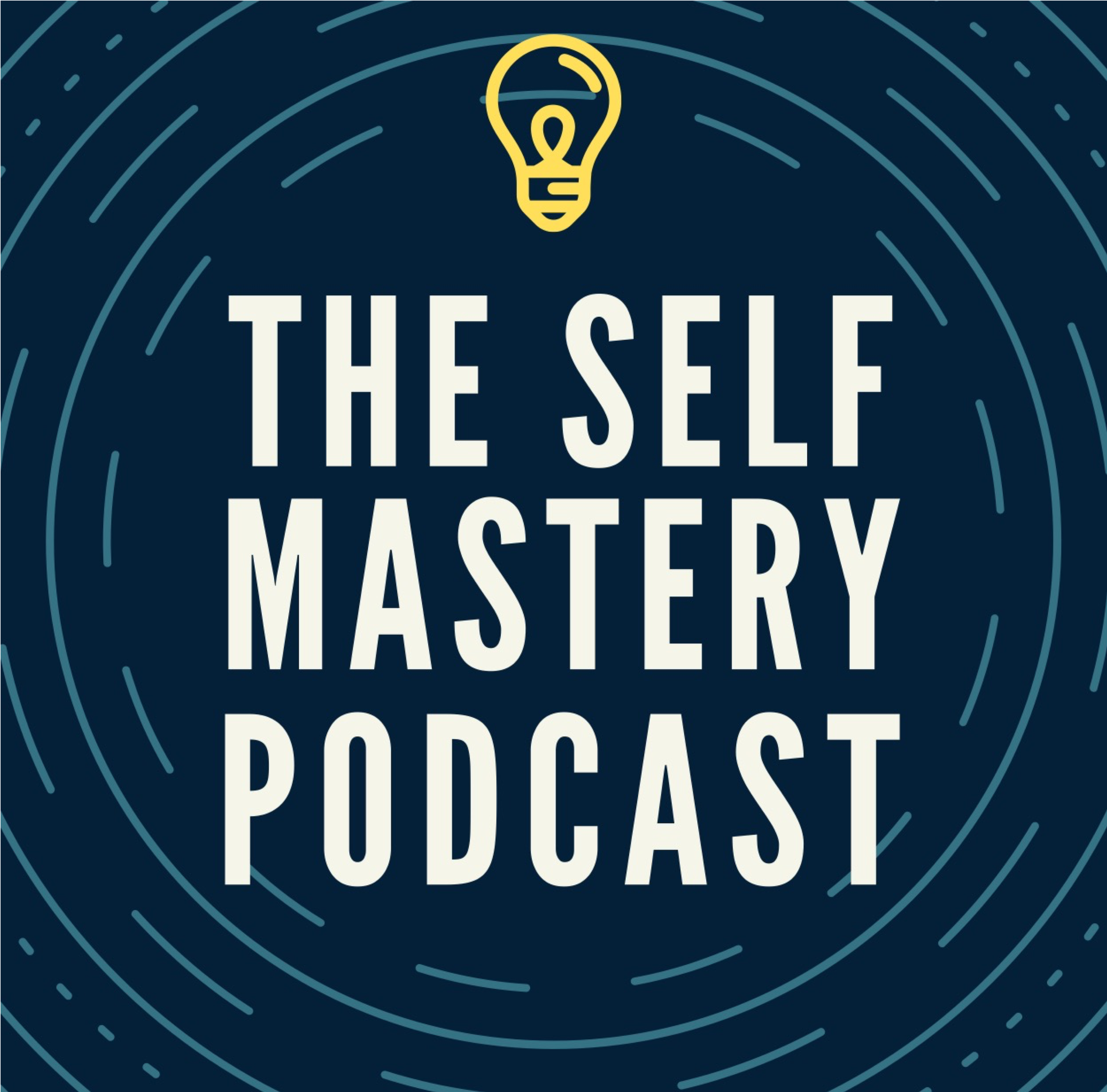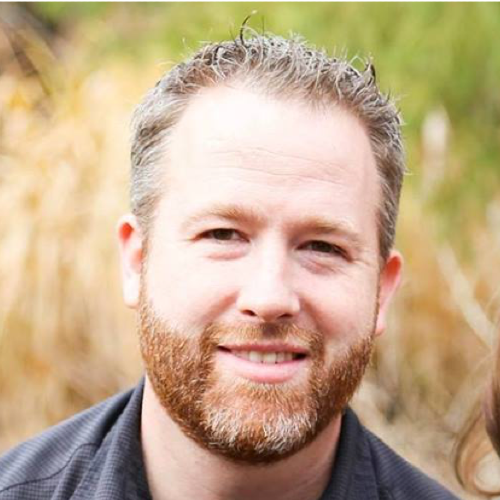How to Help Your Kids Navigate Pornography Exposure with Confidence and Compassion
Thrive Beyond Pornography is about real change. Overcoming pornography was the hardest challenge of my life and marriage. It shattered my confidence, tainted my most important experiences, and felt impossible to escape.
But I did.
This podcast—and the resources at GetToThrive.com—will help you understand the struggle, break free from pornography, and build a thriving life with your spouse.
At some point, I stepped away from 12-step meetings and counselors. I stopped looking for outside solutions and started figuring out my own mind. That shift changed everything. Here, I share those lessons with you. You’ll get the tools, principles, and mindset shifts you need to reclaim control—starting today.
Whether you're struggling with unwanted pornography use, supporting a spouse, or just feeling stuck, this podcast will help you move forward. You’ll hear real conversations with my spouse, experts in human sexuality, and former users who have broken free.
Thrive Beyond Pornography brings a fresh perspective to your journey, helping you change the way you think—and, ultimately, the way you live.
Transcript
How to Help Your Kids Navigate Pornography Exposure with Confidence and Compassion
By Zach Spafford | Thrive Beyond Pornography
As a parent, you’ve probably asked yourself this question at least once—maybe even with a touch of panic behind it: How do I keep my kids safe from pornography?
It’s one of the toughest conversations to navigate. The stakes feel sky-high. But let’s start with something essential.
You can’t shield your kids from every exposure.
No matter how vigilant you are, your child will eventually come across pornography. That’s not fear-mongering—it’s simply the reality of the digital world we live in. Studies show that more than 99% of children in the U.S. see pornography before they graduate high school.
The better question to ask is:
Will they know what to do when that moment comes?
Will they feel safe talking to you about it?
Will they have the emotional skills to process it?
Today, I want to walk you through four key strategies you can use to become the kind of parent your kids trust, learn from, and turn to as they navigate the world—including pornography.
These aren’t theories. These are practical tools my wife Darcy and I use with our own eight children. They've helped us build open, honest conversations around sex, curiosity, and online content—without shame, fear, or secrecy.
Let’s dive in.
1. Talk Often
This is the most important strategy: talk about it, often. Not just once. Not just during “the talk.” And definitely not only after something goes wrong.
Creating a culture of ongoing conversation helps your child feel safe and informed. This doesn’t mean lecturing them or scaring them with dramatic warnings. Instead, create a space where they can learn about their bodies, emotions, and choices in a grounded, respectful, shame-free way.
Don’t force the topic every time they pick up their phone. That’s not helpful. Instead, look for natural moments—a car ride, a quiet chore, a question sparked by something online. No pressure. No intense eye contact. Just open time and space.
Ask questions like:
“Have you seen anything online that didn’t sit right with you?”
“What do your friends say about porn?”
“You know you can come to me about anything you see, right?”
The goal isn’t to have perfect answers. It’s to be a safe space.
One of our kids once made a joke around Valentine's Day: “You should do 69 things you love about each other on the podcast.” Darcy asked, “Do you know what that really means?”
Our daughter froze and admitted she didn’t. Darcy tried to explain it in the kitchen, and our daughter bolted. Yes, it was awkward—but it was also an opportunity. Later, we sat down with the kids who heard the comment and gave a clear, honest explanation.
Guess what? They didn’t go Google it.
They got the truth from us—in a safe, loving, judgment-free space. That’s what “talk often” really means. It means being available again and again, even when it’s uncomfortable.
2. Be Real
This one’s tough, but crucial: be real with your kids.
You don’t have to be perfect. In fact, they don’t even want you to be. What they need is your honesty. Show them that mistakes don’t disqualify anyone from being good or growing up well.
If you’ve struggled with pornography, you don’t have to hide that. You can say:
“Yeah, I dealt with that. It was hard. It took time. But I learned and I got support.”
If you’ve made choices you regret, share those in a way that invites understanding—not shame.
Being real doesn’t mean dumping every detail. It means being human, not just a rule-enforcer. It means showing your kids how to move through life with resilience.
Also, talk about emotions. Don’t just stick to the facts. Talk about what it felt like to be scared, confused, or ashamed. Because chances are, your kids will feel those things too.
This creates real intimacy—not sexual intimacy, but emotional closeness. You model vulnerability and differentiation. You show them that knowing and being known is safe.
You don’t need to be perfect to be a great parent. You just need to be honest, present, and real.
3. Be Kind
Kindness might sound simple—but it’s one of the hardest things to practice when we’re scared or stressed.
How you respond when your child sees or seeks out pornography will shape whether they ever come back to you again.
If your response is panic, punishment, or shame, they’ll shut down. Not because they’re bad—but because they no longer feel safe.
When I talked to my dad about this after returning from my mission in Italy, he went silent. No anger—just awkward disengagement. I never brought it up again.
Your kids need more than that. They need you to respond with calm, compassion, and curiosity.
Let me be honest—when one of our older boys saw something explicit online, my brain spiraled: What if he gets addicted? What if he ruins his marriage?
But that panic doesn’t help. It only adds pressure.
So I stepped back, took a breath, and said:
“Thanks for telling me. That was probably hard. Let’s figure out what happened and what you want to do next.”
When you show up with kindness, especially in moments of vulnerability, you teach your child to be kind to themselves. That might be the most important lesson of all.
4. Clarify What’s Going On Inside
This is where you move from reaction to reflection.
If your child is turning to pornography—or even feeling curious about it—there’s something underneath. Maybe boredom. Maybe loneliness. Maybe stress, rejection, or emotional overload.
Most kids don’t know why they’re doing what they’re doing. That’s why your job isn’t just to stop the behavior. It’s to help them build awareness.
Ask questions like:
“What were you feeling before you looked at that?”
“What was going on for you today?”
“Were you bored? Lonely? Upset?”
Help them name the feeling. Once they can name it, they can start working with it.
I’ve had kids say:
“I was just bored.”
“I think I was lonely.”
“I was just horny”—followed by a red face and, “I can’t believe I said that to you!”
I just smiled and said, “Thanks for telling me.”
That moment of honesty? That’s the moment everything begins to change.
When your child can understand their feelings and connect behavior to emotion, they gain power. And when you meet that moment with compassion, you help them build a lifelong skill—pausing, noticing, and choosing based on their values.
And don’t forget to remind them:
“You can always come to me with questions. I love you, and nothing you do will change that. I’ll always tell you the truth.”
If you’re not their safe, trusted source of answers, they’ll go to Google. Or Reddit. Or Snapchat. Or their friends. And those sources rarely offer wisdom rooted in values and love.
Final Thoughts: It’s About Connection, Not Control
You won’t prevent every exposure. But you can help your child understand themselves. You can give them tools to face life with awareness, strength, and agency.
Let’s recap:
Talk Often – Make honest conversations a normal part of life.
Be Real – Share your humanity, not just your authority.
Be Kind – Respond with empathy, not fear or shame.
Clarify What’s Going On – Help them understand their emotions and choices.
These practices aren’t about controlling your child. They’re about connecting with them.
You don’t have to be perfect. You just have to care, show up, and grow with them.
And if you want more support, I’ve got resources for you:
Join our Thrive Beyond Pornography membership for open coaching calls.
Download free tools (including a link to Covenant Eyes) at GetToThrive.com.
Or work with me directly at GetToThrive.com/workwithZach.
If this helped you, please share it with a friend. Leave a quick review or tag me on Instagram [@thrivebeyondporxography]—where the “n” is replaced with an “x”.
Thanks for showing up. Thanks for caring. Remember, control feels safe—but real power lives in choice.
See you next week.




